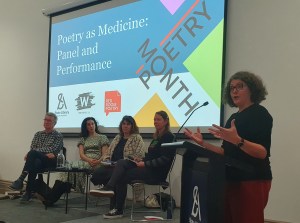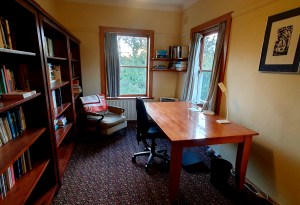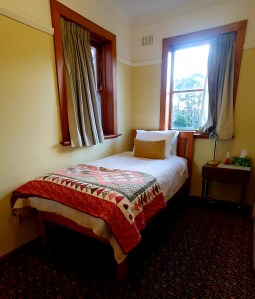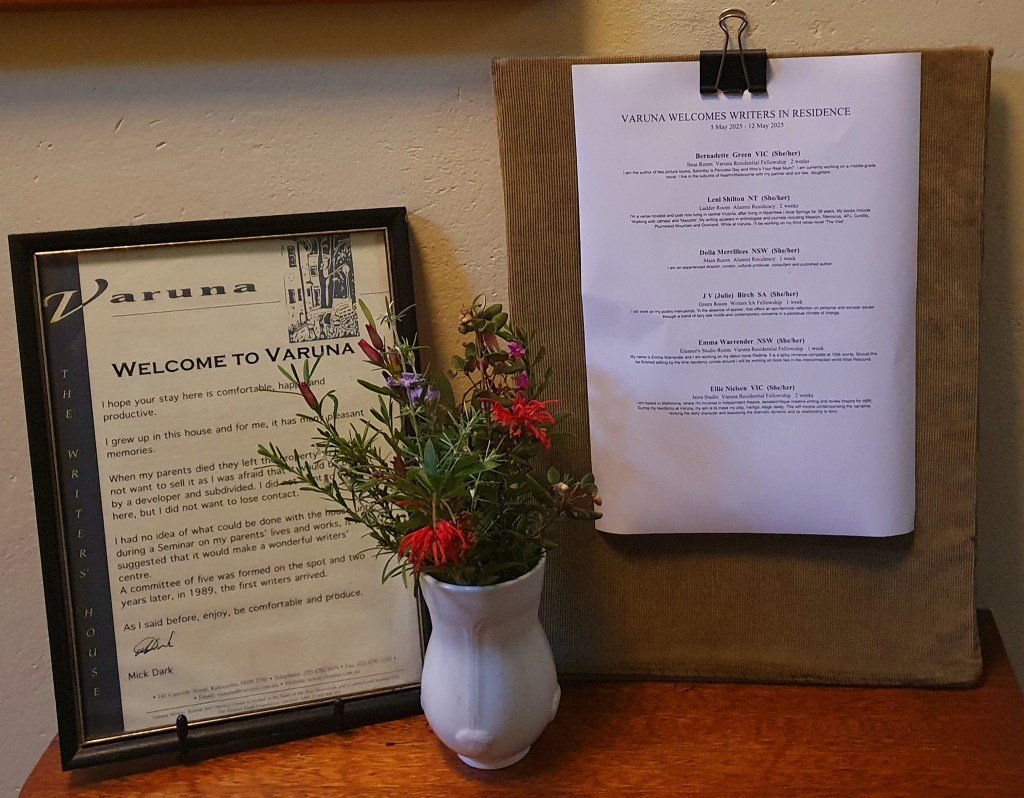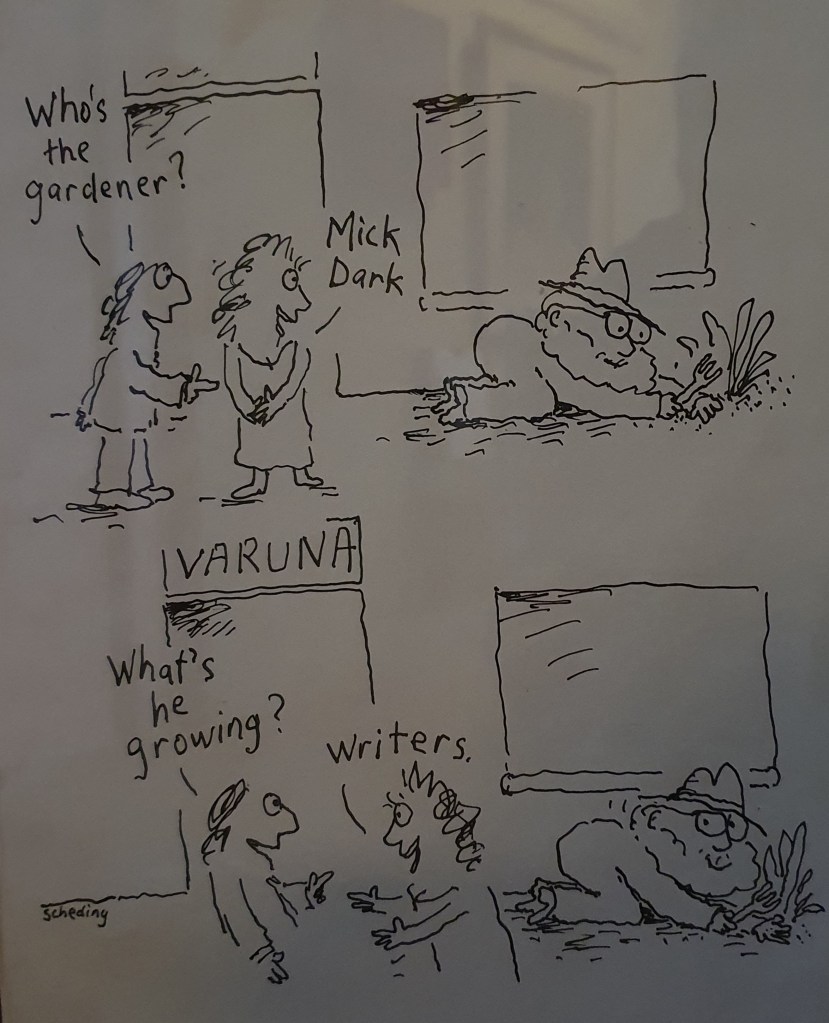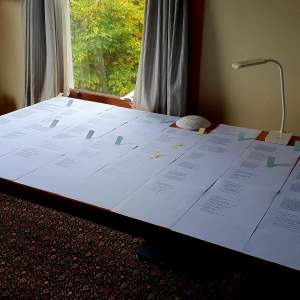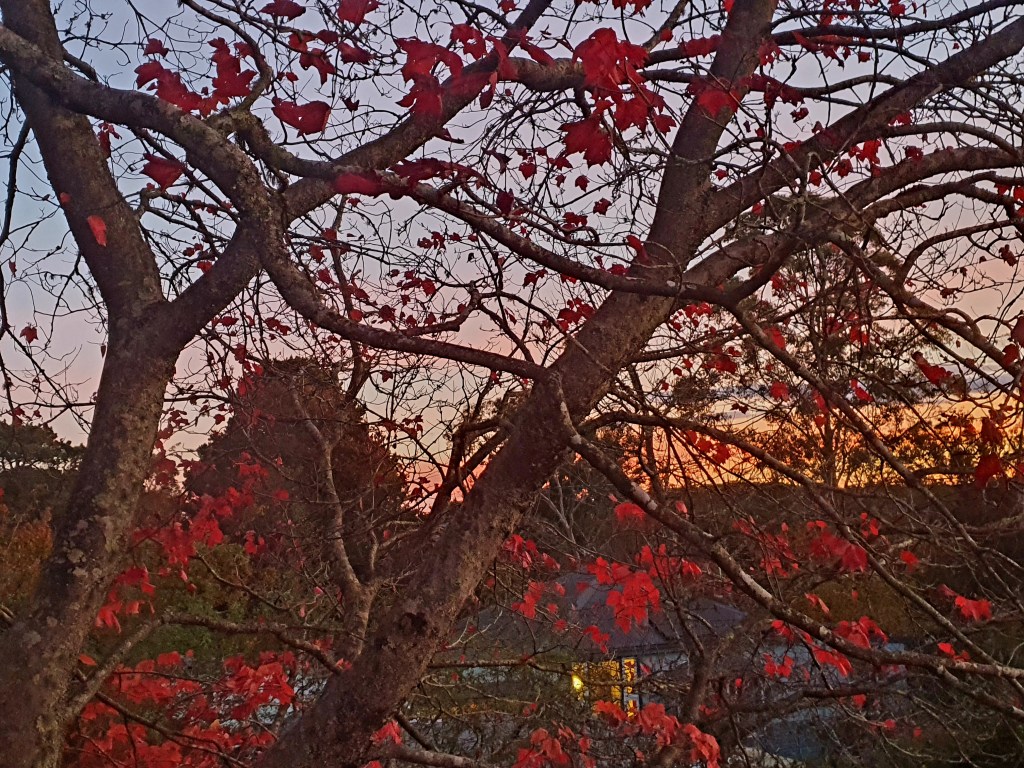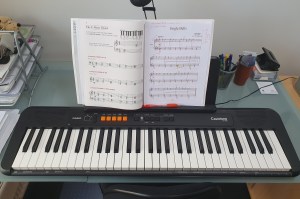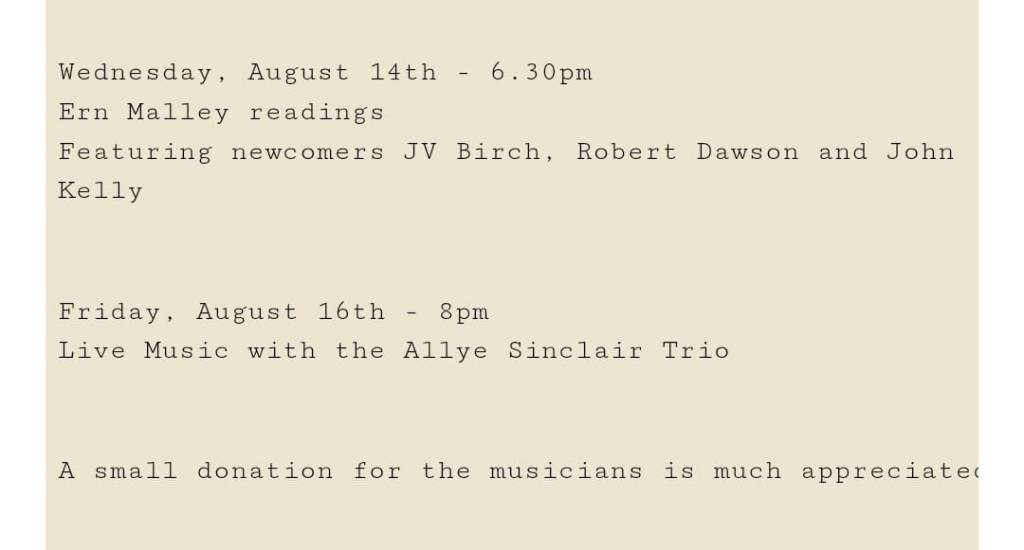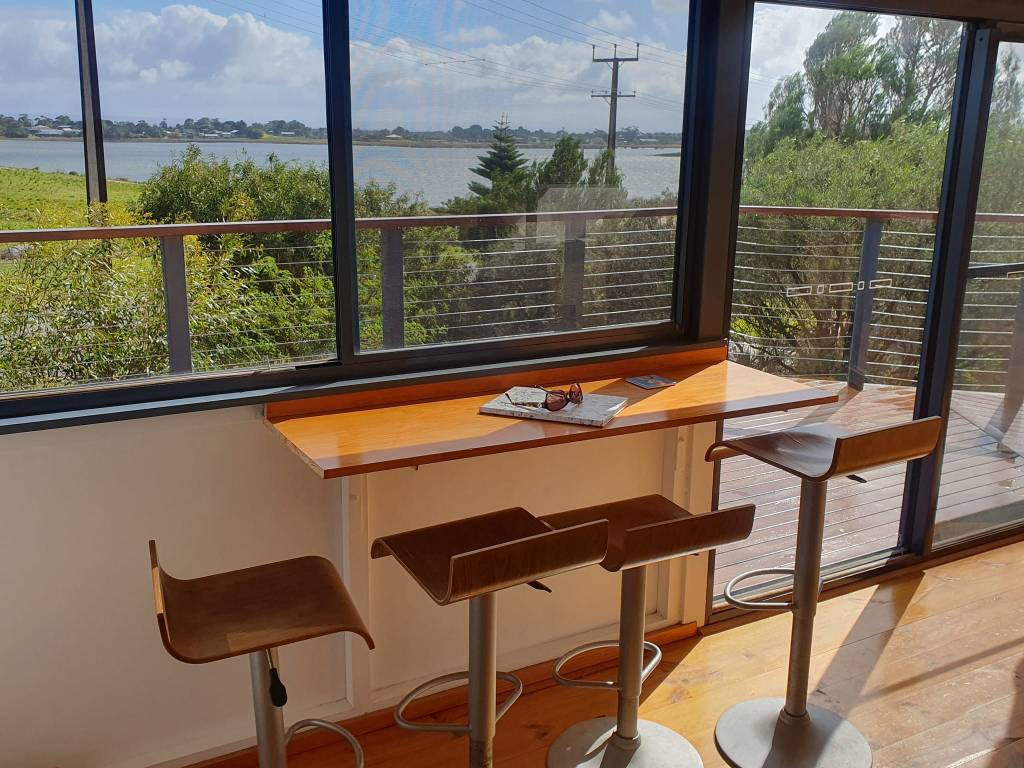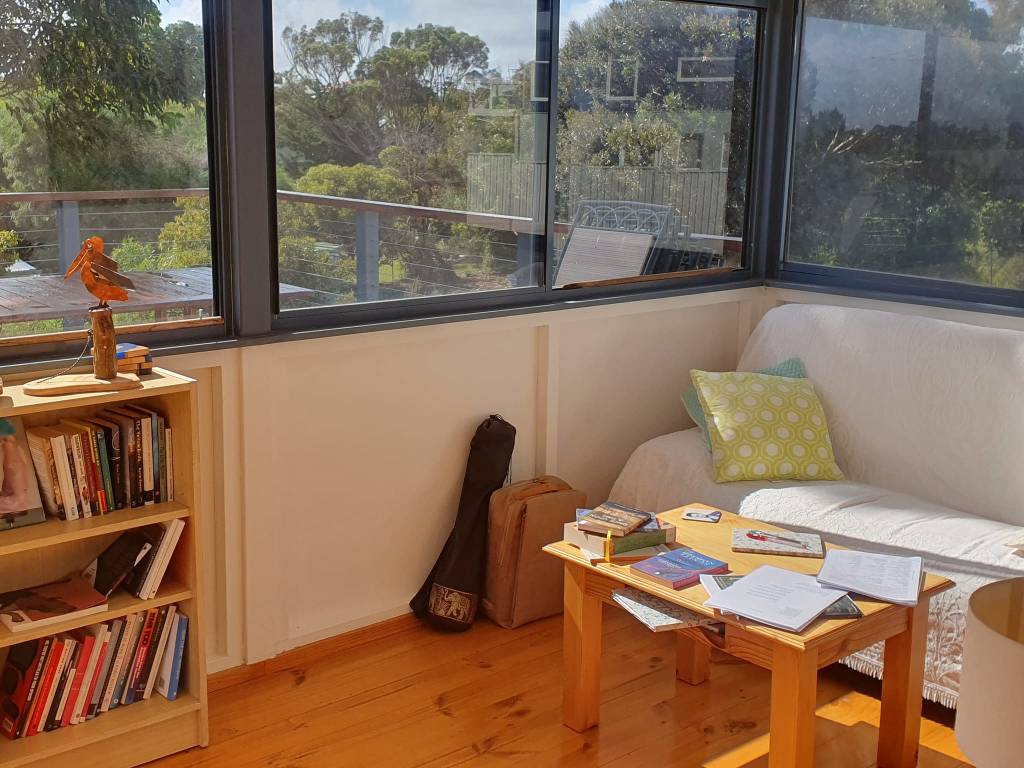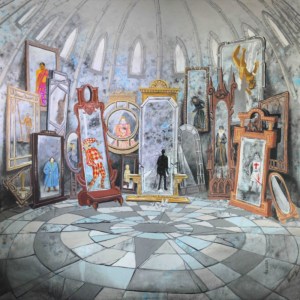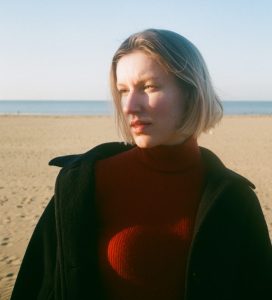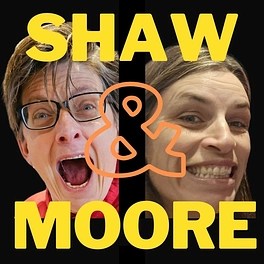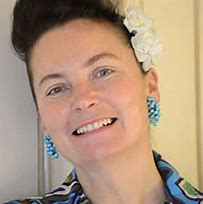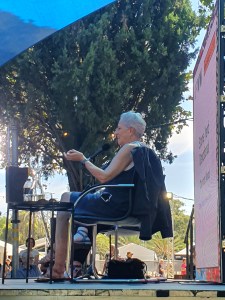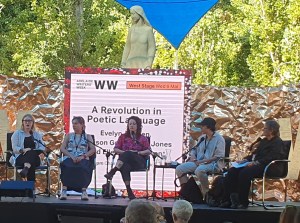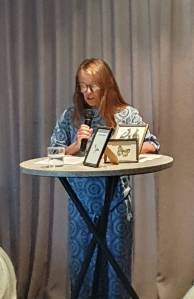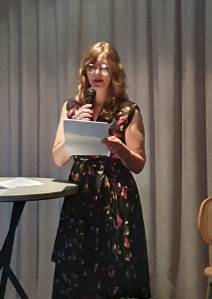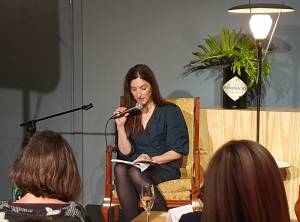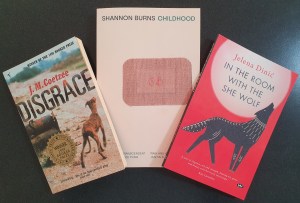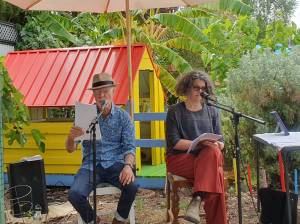Another national Poetry Month is nearing its end that has brought a variety of events to get involved in, from online readings to in-person workshops, many of which were facilitated by Red Room Poetry. Here’s a few that I attended.
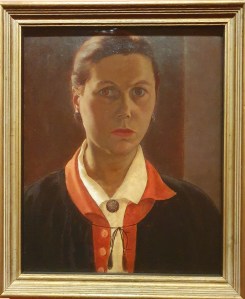

First up was a poetry workshop based on the Dangerously Modern art exhibition with Jill Jones. Taking images from the gallery by pioneering Australian women such as those depicted above, we explored objects, interiors and thresholds in response to them through a series of writing exercises, some of which I plan to develop further to see where they take me.
I went along to a panel discussion next, Poetry as Medicine, with the poets above sharing what this means to them and excerpts from their work, that varied from the impact of chronic conditions on the self through to big picture impacts on the world around us. The questions were thought-provoking and produced some interesting answers, with the session culminating in a reading from Anna-Mei Szetu.
The last event was the online workshop Finger Exercises for Poets with American poet Dorianne Laux, who read extracts and exercises from her book by the same name, explaining how its concept was inspired by the finger exercises her mother did on the piano before playing a piece of music. It’s a book that definitely warrants spending time with.

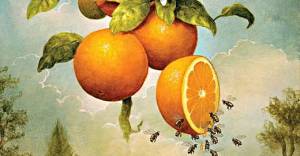
In-between these events I’ve continued with my regular commitments – a monthly online feedback workshop with Cath Drake, meeting with a local poetry group and an online writing session that delved into using the senses with The Orange & Bee. I’ve also been pairing photos taken on my various walks with poetic quotes and sharing them on Facebook and Instagram to help keep the poetry conversation going, but also as a little relief from the daily onslaught of horror that’s called news. Give me a snowdrop thriving through a crack in cement any day.

